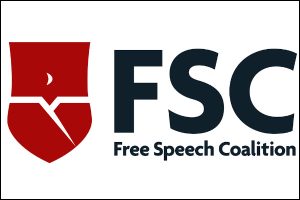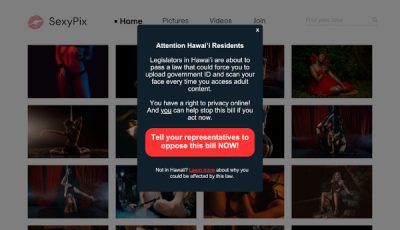FSC Asks Court to Block Enforcement of Fla. Age-Verification Law
 TALLAHASSEE, Fla. – In a motion for a preliminary injunction filed yesterday in the U.S. District Court for the Northern District of Florida, the Free Speech Coalition and its co-plaintiffs asked the court to block enforcement of HB 3, a law which mandates age-verification for social media sites and sites offering “material harmful to minors.”
TALLAHASSEE, Fla. – In a motion for a preliminary injunction filed yesterday in the U.S. District Court for the Northern District of Florida, the Free Speech Coalition and its co-plaintiffs asked the court to block enforcement of HB 3, a law which mandates age-verification for social media sites and sites offering “material harmful to minors.”
“After numerous federal court decisions invalidating as unconstitutional state and federal laws seeking to regulate or ban the publication of content harmful to minors on the internet, the Florida Legislature has tried yet again with H.B. 3,” FSC stated in the motion. “The Act places substantial burdens on Plaintiff website operators, content creators, and countless others who use the internet by requiring websites to age-verify every internet user before providing access to non-obscene material that meets the State’s murky definition of ‘content harmful to minors.’”
In the motion, FSC noted Florida’s “attempt to restrict access to online material is not novel.”
“The United States Supreme Court invalidated a federal law restricting internet communications deemed harmful to minors on First Amendment grounds in Reno v. ACLU,” FSC observed in the motion. “And in state after state, laws containing content-based restrictions on internet communications deemed harmful to minors have been held unconstitutional. Yet despite this long legacy of constitutional invalidity, the Florida Legislature has used not just the same tired justifications, but even the same statutory terms and definitions that led to invalidation of those past efforts. In doing so, it has placed Plaintiffs in the untenable position of abiding by the Act’s terms and enduring the constitutional infringement, or violating the Act and risking lawsuits.”
FSC asserted in its motion that HB 3 “violates the First Amendment in several respects.”
“It imposes content-based restrictions on protected speech without the required narrow tailoring and without employing the least restrictive means to serve a compelling state interest, yet it captures a substantial quantity of protected speech without accomplishing the stated purpose of protecting minors from materials they may easily obtain from other sources and via other means,” FSC argued. “And because it is substantially overbroad and vague, it poses additional concerns under the First and Fourteenth Amendments. So, too, does it violate the Constitution’s Supremacy Clause by treating certain website operators as ‘publishers’ – just as federal law prohibits.”
In a statement announcing the filing, FSC Executive Director Alison Boden said “Floridians have the right to go online anonymously.”
“While keeping minors from adult content is a laudable goal, the government does not have the right to force legal adults to scan their face, upload a photo ID or otherwise give up their privacy to access the internet,” Boden added.
The Florida law went into effect on January 1. As noted by the FSC in their announcement yesterday, the effective date of the law was “followed quickly by word that the Attorney General’s office has already begun investigating several adult websites.”
In the Tallahassee Democrat report referenced in the FSC’s statement, Chase Sizemore, a spokesperson for Florida Attorney Ashley Moody said Moody’s office had received three complaints “regarding pornographic websites failing to comply with age verification laws,” adding that the complaints are “currently under active review by our Enforcement Division.”
FSC announced last month it had filed suit to challenge HB 3, with Boden saying at the time that laws like HB 3 “create a substantial burden on adults who want to access legal sites without fear of surveillance.”
“Despite the claims of the proponents, HB3 is not the same as showing an ID at a liquor store. It is invasive and carries significant risk to privacy. This law and others like it have effectively become state censorship, creating a massive chilling effect for those who speak about, or engage with, issues of sex or sexuality,” Boden added.
FSC is challenging similar laws in Tennessee, Louisiana, Texas, Utah, Indiana and Montana. The Texas case, Free Speech Coalition v. Paxton, will be heard by the U.S. Supreme Court next week.













